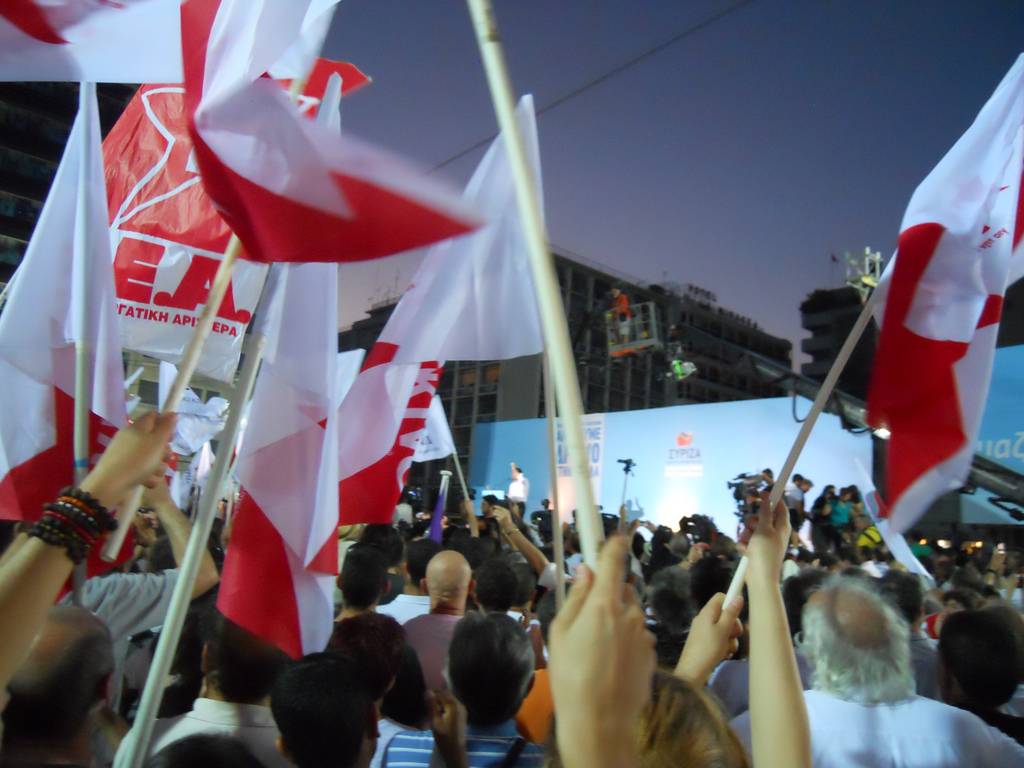My latest piece on Greece was published yesterday at Ricochet. In short, Europe and the IMF’s message that ‘there still is no alternative’ proves that objective of punitive austerity is political, not economic. Here it is in full:
The project’s aim is to make an example of Greece and solidify austerity as the only option within a Europe united by elite interests. Emergency summits, duelling proposals, trickles of banking system support and stern warnings create an economic veneer to paper over ultimately political aims.
Take the latest “compromise” proposal made yesterday by Greece’s ruling party Syriza. It offers a whopping additional €8 billion in austerity measures over the next year and a half. These measures amount to 1.5 per cent of GDP in 2015 and nearly 3 per cent of GDP in 2016. Rather than a compact for growth, or even stability, Europe has squeezed out yet more painful austerity that will make it much harder for Greece to escape its 21st-century Great Depression.
It is “not the right moment” to discuss debt relief, Jean-Claude Juncker, the head of the EU Commission, was quoted saying, despite the increasing concessions. This is the political, not economic, function of the Greek debt. It’s not the right moment economically to discuss the debt because Greece has long been insolvent, its debt repayments kept on track by drip-fed funding via subsequent agreements of austerity. Politically, it’s never the right moment, because each new agreement maintains austerity as the only possible option.
